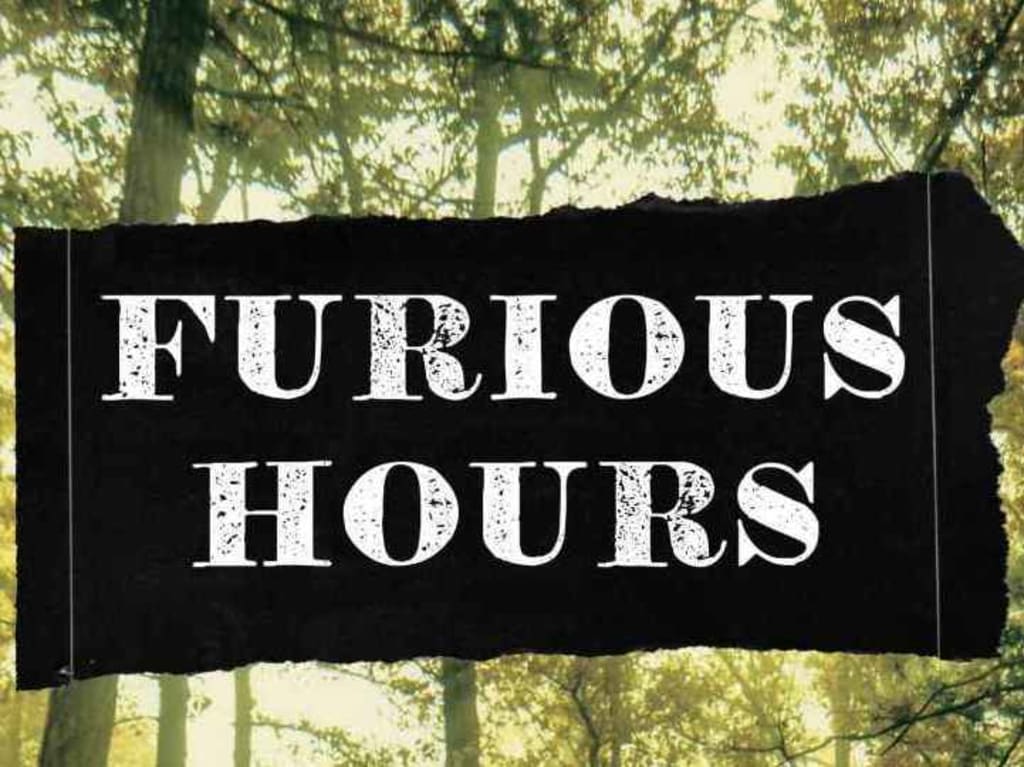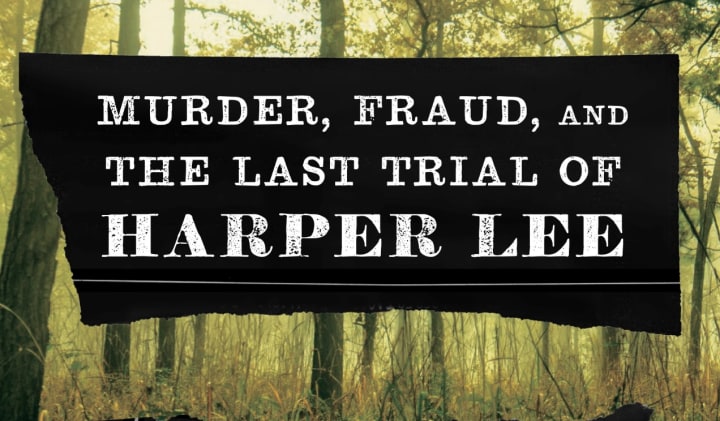“Furious Hours: Murder, Fraud and the Last Trial of Harper Lee” by Casey Cep
The Long Reviews (Pt.1)

This book is something I read purely because for a while, I had been interested in what this has to do with Harper Lee. By the time I read it, I knew what the book concerned, but I hadn’t got a clue what that had to do with the writer Harper Lee except for the writing of “To Kill a Mockingbird”. So, when I did read it, I paid extra attention to the first two sections in which Casey Cep seeks to teach the reader about racial politics in the courtroom during the early 20th century in the Southern States of America. It is by no means a pretty sight but it is able to tell the reader why Harper Lee felt that, especially in the state of Alabama, it was important to write a book that struck the heart of the political community, their wrongs and the way in which they treated certain skin colours as worse than others even when under oath.
By the time I finished the book, I had learnt so much about Alabama, the history of racial prejudice in the courtroom, murder charges and the way in which they were laid with conviction or acquittal based on the social class, colour and reliability of the individual involved (though the last one is not that much of a concern if the first two are already judged as being on the ‘wrong side’ of society) and the way this had an impact on Harper Lee, her upbringing and her writing of “To Kill a Mockingbird”. The first two sections set the reader up for things that come later. They give us the ‘why’ of the situation because, though in the North - integration and acceptance were faster, the South were always (and still are) slow to catch up when it comes to racial diversity and pride.
When it comes to “To Kill a Mockingbird” - the reader definitely sees that the third section of this book, Harper Lee is writing about something she saw, she researched and she knew about because of the fact she grew up in such a society that was, for reasons she did not yet understand, were prejudice against the African-American in everything from the education system, the occupational life, the American Church and even in the courtroom in which justice was supposed to be blind and equal. The research that Casey Cep did for this novel is unbelievable, quoting Harper Lee, Truman Capote, Carson McCullers, Flannery O’Connor and other members of the Southern Gothic, Non-Fiction Novel and changing world of the 20th century literary scene in America.

Casey Cep also manages to write about the publication history of Harper Lee’s novel “To Kill a Mockingbird” and the aftermath in attempting to write a book about the first two sections in which the murder of the reverend is covered. Even though she does not finish it, there is a constant revisiting to Lee’s first novel and so, we get this feeling that Harper Lee is trying to better herself by trying to write yet another novel. As people who love literature, we know that Harper Lee only ever published one novel in her lifetime (with “Go Set a Watchman” coming out after she died) and that was pretty much enough to keep her in the literary limelight for quite some time as it was one of the best-selling books of all time. However, this writing of another book portrays Harper Lee as, in comparison to her best friend Truman Capote, struggling with fame and becoming more and more withdrawn as more and more people as her about her progress with the new book. The fact that people are trying to give their own sides of the story as facts and not as just rumour tend to make Harper Lee want to give up on the book about the Reverend.
There is an underlying sorrow that you feel for Harper Lee as her fame grows, the people who helped her to get there begin to die: her agent, her publisher, her friends, her sister, Truman Capote, and many more are lost to the past and this also makes Harper Lee almost exhausted by this lifestyle. Again, she becomes more and more withdrawn. It is a remarkable book in which we see the politics, the cases and the woman who attempted to document this injustice in one of the greatest books ever written.
This book is my “Book of the Month” because of the sheer amount of research that has gone into it. From the history of “Alex City” to the racial intolerance of the Alabama courts to the scandal of Truman Capote and the publication history of “To Kill a Mockingbird” by Harper Lee, there is definitely a wide range of things to explore and yet, they are all completely relevant to understanding the book and its narrative points. One thing I would like to see is more people reading this book and learning from it. Especially in this time, we can all learn a lot and confront ourselves as we read this book. This is the “Book of the Month” for me because of the way in which it presents racial injustice as something that is learnt and applied, something that hijacks culture and makes everyone blind to the sheer intolerance of even the most powerful and authoritative people in the land: the cops, the lawyers and the judges. They’re all in on it and it is dissolving the diversity and tolerance of their culture.
It is sad to witness but completely relevant to teaching the reader the true story behind Harper Lee and writing, publishing and then looking back on her most intense writing experience and her life in Alabama. Especially when we compare it to her very different lifestyle in New York - they seem like two different worlds. Alabama - where Harper Lee is known and adored to the point of contradiction by the public living there who allow the injustice against black people, and New York - where nobody pays very much attention to her in public and she can live quietly and the people are treated with more respect as individuals, later on they are not so much judged on the colour of their skin. Not like Alabama, anyway.
About the Creator
Annie Kapur
200K+ Reads on Vocal.
English Lecturer
🎓Literature & Writing (B.A)
🎓Film & Writing (M.A)
🎓Secondary English Education (PgDipEd) (QTS)
📍Birmingham, UK






Comments
There are no comments for this story
Be the first to respond and start the conversation.